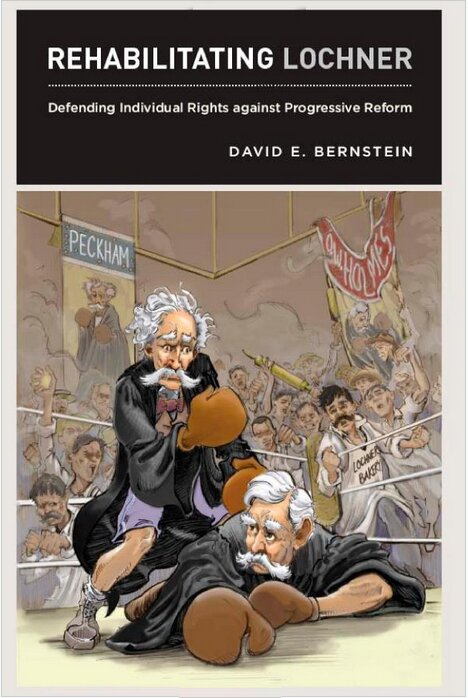In the Atlantic, Caroline Frederickson, until recently head of the American Constitution Society, proffers a "mea culpa" for the ACS generally not during her tenure focusing on economic issues. Over at PrawfsBlawg, Paul Horwitz ventures several guesses as to what caused this longstanding oversight in the ACS' prioritization.
Without challenging any of Horwitz's explanations, all of which are plausible, I'll offer one more: the ACS, like most liberal legal institutions of its era, focused on issue areas where the judiciary would intervene to stop bad actions by other branches of government. On gay marriage, for example, the liberal focus was on judges striking down legislative prohibitions on same-sex marriage. On policing the goal was for judges to hold accountable instances of officer brutality and abuse. On gerrymandering the idea was for judges to invalidate imbalanced or unfair maps. In all of these cases, courts are in an antagonistic posture to other facets of the government and intervene to in some thwart or ameliorate some policy or practice implemented by another branch.
From this vantage, "economic issues" would not have been seen as a natural fit for an organization like ACS. From a template of judicial intervention against other branches, liberals still labor under the ghost of Lochner which holds that judicial overrides of democratic decision-making in the economic realm, in particular, is the sine qua non of illegitimate judicial activism.
Of course, in many cases the liberal desire out of judges in these economic realms (like competition policy and anti-trust) is for judges to stay out of the way and let the democratic or administrative branches do their thing. But here a different bias or blindspot of groups like the ACS emerges: the assumption that liberals don't need to urge the courts towards judicial restraint. Even as the conservative takeover of the judiciary marched along, liberals tended to react to it with dismay that courts might not intervene in areas where liberals believed they should. They wouldn't strike down gay marriage bans, they wouldn't curb abuses of post-9/11 surveillance, they wouldn't combat partisan gerrymandering. Some of these concerns proved prescient, others didn't pan out. But the framing was still in terms of seeking judicial intervention. Restraint was taken for granted.
It took a long time for liberals to fully grok the threat of judicial conservatism not manifesting as too much restraint, but of a complete lack of restraint -- a counter-activism. There were plenty of warning signs that liberals should be worried. But old habits die hard. For example, surely one of the most important liberal legal victories of the past two decades was the Supreme Court upholding Obamacare. Yet Frederickson did not say, and I think most legal liberals still would not say, that one of ACS' priorities either is or should have been "health care". In terms of judicial intervention, health care is seen as an inappropriate, Lochner-esque subject. And in terms of judicial restraint, well, liberals took judicial restraint for granted.
Now, finally, this ingrained presumption is cracking. We are in an era where the conservative judiciary's primary sin is not at all taking restraint too far, but its indulgence in wild interventionist non-constraint. In this epoch, where Chevron and the entire administrative state are under siege, where First Amendment Lochner-ism is roaring back to life, it becomes absolutely essential for liberals to reassert boundaries on judicial arrogance. And so now there is a lot of room for a group like ACS to make economic policy a priority. Today, efforts to shore up the vitality of administrative bodies seeking to police the economic realm isn't a redundancy, but a dire necessity.
When I first started teaching constitutional law, I spent a lot of time trying to pour some cold water on my liberal students' Warren Court idealism and have them consider the risks of judicial activism and the virtues of democratic deference. This was not so much because I was especially inclined towards judicial restraint or minimalism, but rather because the entire concept that courts shouldn't be vanguards of social change was effectively alien to the average student such that the only way I could give them anything new was by trying to at least partially counterbalance the narrative. In 2023, it has become less necessary for me to explain the perils of unconstrained judicial intervention and the dangers of an activist court; now, to some extent, the counterintuitive pitch I have to make sometimes is to explain why and how courts can still be useful forces for good in the world.* But the point is that the conventional wisdom amongst liberals is finally stopped viewing restraint and democratic deference as something they are entitled to on demand. In a world of rampant conservative judicial activism, there is a lot more space for legal liberals to pay attention to the economic realm.
* Though I will say that I'm surprised, in a world where Brett Kavanaugh is the median SCOTUS vote, just how resilient my students' faith in judicial interventionism remains.



